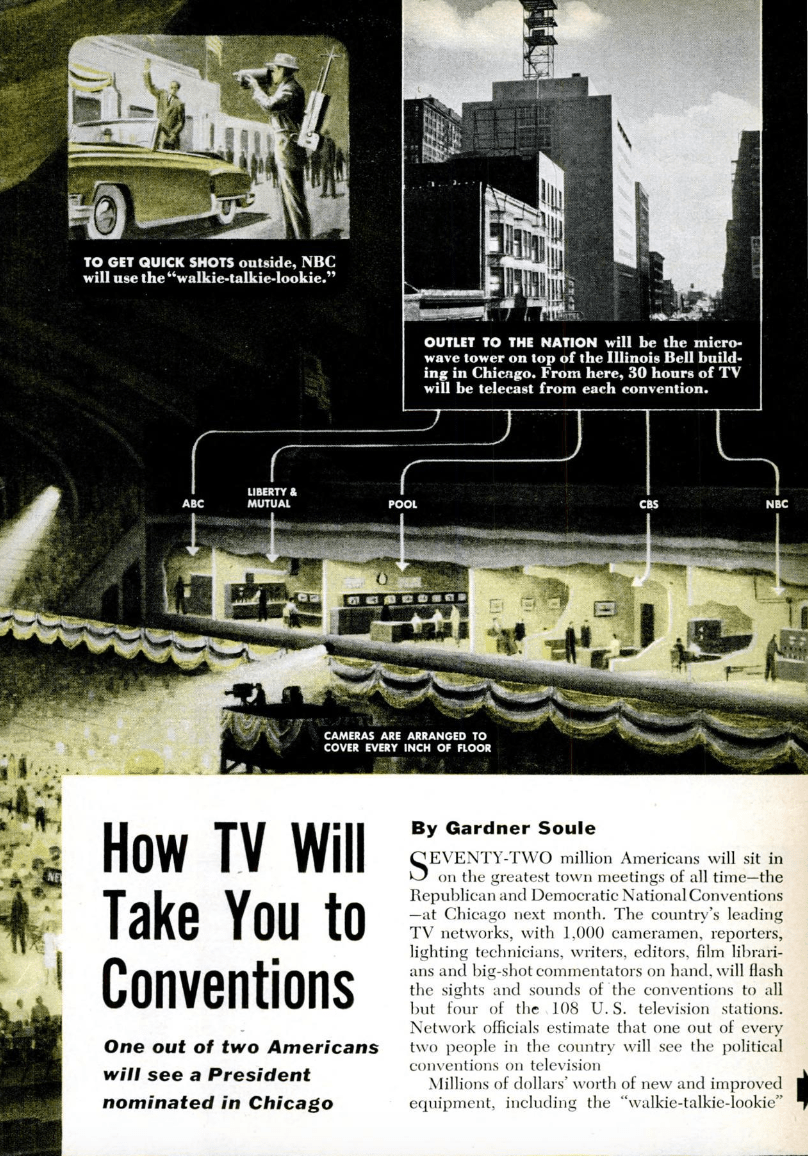What’s the most important technology in the history of politics?
Born on the battlefield and evolved at a pivotal time in US history, the walkie-talkie-lookie changed the way Americans saw politicians. Literally. In 1952, Dwight D. Eisenhower and Adlai Stevenson were squaring off in the US presidential election and the walkie-talkie-lookie helped beam the candidates into the homes of millions of voters for the first time.
Right before the conventions in the June 1952 issue of Popular Science, reporter Gardner Soule wrote that the new “walkie-talkie-lookie” would make it possible to “pursue a Presidential candidate or a delegate right up to the door of his bathroom.” Soule also noted that this technology and its ability to follow a subject anywhere was “a thought to chill almost anyone, let alone the average politician.”

The walkie-talkie-lookie was technologically amazing–it had three lenses that could be rotated to fit different purposes, while an army of traditional TV cameras also fed footage to mobile trucks that could edit and send newsreels within an hour. Modern live news was being born.
Soule wrote that this level of exposure might lead to “more thoughtful voting, and better selection,” concluding that, “television may prove to be one of the greatest aids to self-government ever developed.” William McAndrew, who was in charge of NBC’s TV coverage, got even more directly to the point: “The viewer will either think a party in convention is businesslike and efficient or he will think it is a bunch of clowns and he’ll vote the other way.”
In the end, one candidate took television’s potential impact on the election seriously while the other went out of his way to reinforce that he did not watch or even own a television. You probably know which one prevailed in a landslide victory.
Our latest video from the Popular Science YouTube channel explains how if you wanted to divide all of global politics into two eras–before 1952 and after 1952–you probably wouldn’t be wrong. Watch the full video to learn more and subscribe for more lessons in forgotten tech history.


